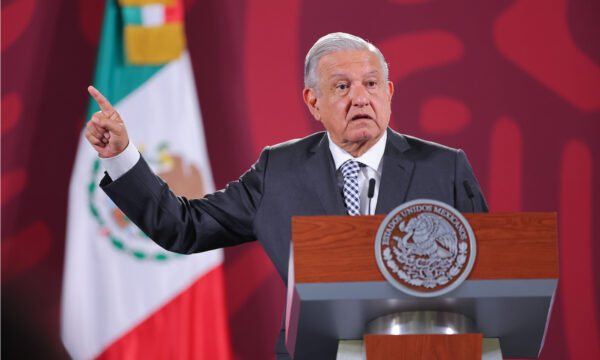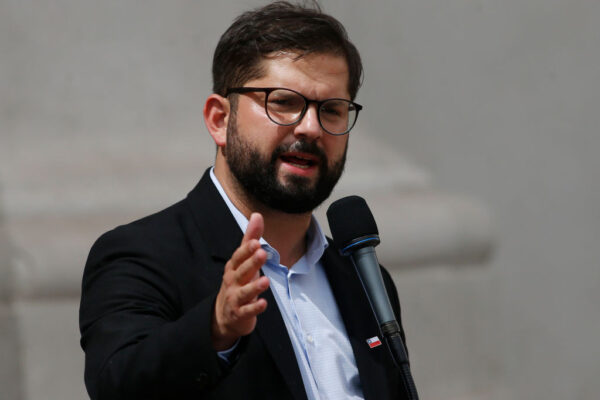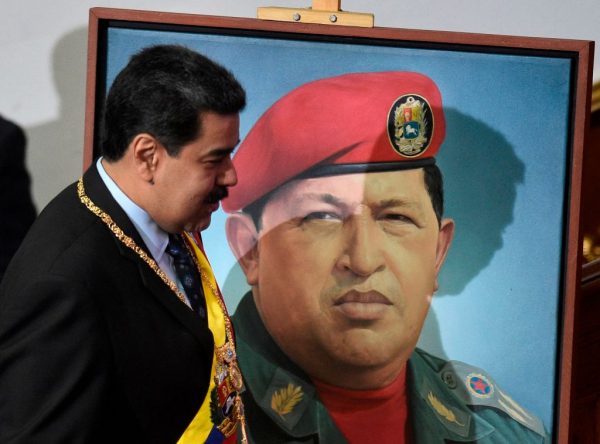
Plans for a single currency in Latin America resurfaced after more than a decade on Jan. 23, when Brazilian president Luiz Inacio Lula da Silva announced the initiative at a bilateral conference in Buenos Aires.
The Brazilian president—commonly known as Lula—pitched the idea as a means for Argentina and Brazil to end their dependency on the U.S. dollar.
So far, Lula’s proposal has received more criticism than praise.
Regional analysts don’t see any economic benefit in a shared currency for Brazil. Moreover, some say the initiative is “not realistic” and believe a universal currency isn’t possible amid stark realities like high inflation rates and a lack of government cooperation.

During the conference, Lula said the notes would initially be specifically used for trade between Brazil and Argentina. Though the Brazilian president mentioned wanting to extend the reach to other countries within the region eventually.
“Our finance ministers, each with his own economic team, can make us a proposal for foreign trade and transactions between the two countries that is done in a common currency, to be built with much debate and many meetings,” Lula told the press.
Among the growing pool of skeptics are fellow socialist leaders in Latin America.
Ideological Statement
“We would not agree. For many reasons, we have to continue maintaining the [U.S.] dollar as a reference,” Mexico’s President Andres Manuel Lopez Obrador said during a daily press conference on Jan. 24.
Chile’s President Gabriel Boric expressed his thoughts on the topic during an official visit to Colombia last August.
The Chilean head of state said that while he’s “available” to discuss the topic of a single currency in Latin America, he warned “much progress” has to be made first.
“These specific mechanisms are very complex … these are long-term processes, and we have a lot to advance before,” Boric said.

The minister of finance in Chile, Mario Marcel, was quick to respond to Lula’s Jan. 23 proposal.
“For the moment, we are comfortable having our own monetary policy and fiscal policy, which have been especially useful to start reducing inflation this year.”
Brazil is Latin America’s largest economy and currently struggles with inflation, political division, poverty, and soaring crime rates.
Subsequently, Lula’s vision for a universal currency hasn’t been a crowd-pleaser among Brazilians.
“It’s not a popular measure. It’s specifically [designed] to benefit failed economies in Latin America. How does that help Brazil?” economist and political analyst Paulo Figueiredo told The Epoch Times.
In his native Brazil, Figueiredo has seen his fair share of economic policies. He says Lula’s proposal is more of an “ideological statement than a reality,” adding that it has, “A little bit of an anti-American theme behind it as well.”
‘What’s the Point?’
He noted the reason Latin American countries keep reserves of U.S. dollars and also use them for trade is that it’s a dependable, versatile currency.
With that in mind, he posed the question, “So why come up with a trade currency for just Argentina and Brazil? What’s the point?”
Figueiredo says it’s because Lula wants to make a statement that Brazil can stand on its own without help from the United States. With it being the largest economy, he added it’s always been a policy of Lula to help struggling, socialist nations.
“It’s a policy of Lula to finance failed Latin American economies.”
And it comes in a nick of time for Argentina, which closed 2022 with national inflation levels near 95 percent. That’s the highest the country has endured since 1991.
“Brazil has a lot to lose. Argentina has enough to win,” regional analyst and author Dr. Orlando Gutierrez-Boronat told The Epoch Times.
Boronat says reliable countries in the region with orderly macroeconomics, like Uruguay and Chile, have “a lot to lose when they integrate with larger, less predictable countries.”
He also said Brazil is risking its reputation. Beyond sky-high inflation, Argentina has an established legacy of defaulting on debts. It’s a reputation that may also affect Brazil and cause doubt among future investors, according to Boronat.
Ignoring Reality
When former Venezuelan President Hugo Chavez announced the creation of a universal, electronic currency for the region back in 2009, it had the backing of an entire trade bloc of nations within Latin America and the Caribbean.
That year, Chavez touted the new monetary unit as the region’s answer to the 2008 financial crisis that had gripped the United States.
Chavez urged neighboring countries to stop storing reserves of U.S. dollars and called the 2008 crisis the “end of capitalism.”

Thirteen years later, the region has forgotten the former Venezuelan president’s boast of having a common currency circulating by early 2010. Since then, the economic landscape in Latin America has changed drastically, but Lula—who was Brazil’s president in 2009—is holding tight to Chavez’s original vision.
Though Lula has returned to office in a very different political and economic climate. The political division within Latin America has never been deeper. Fewer and fewer people are willing to tolerate left-wing rhetoric without definable outcomes.
Long gone is the “pink tide” heyday for socialist leaders. Increasingly volatile civilian populations have been quick to oust presidents who don’t deliver on their promises in recent years.
An Argentinian analyst who preferred to be identified by his first name, Chris, told The Epoch Times that “Lula’s proposal is not at all realistic.”
Living in Buenos Aires, Chris has watched his country’s economic tailspin play out in real time over the past 12 months. Based on the drastic differences between Latin American countries and their governments, it’s a policy nightmare, according to Chris.
Like the population, politicians in the region have also become much more polarized.
Chris says when a new Argentinian president comes into office, the first order of business is undoing or changing the policies made by the former administration.
This alone makes the level of cooperation and integration necessary to pull off a universal currency between Argentina and Brazil improbable.
“It took decades for Europe to implement the Euro and most of the economies were already strong,” Chris said.
Figueiredo agreed, saying, “The economy is a consequence. To have a strong economy, you need a country with a strong rule of law. Right now, Brazil is on the opposite side of that.”



